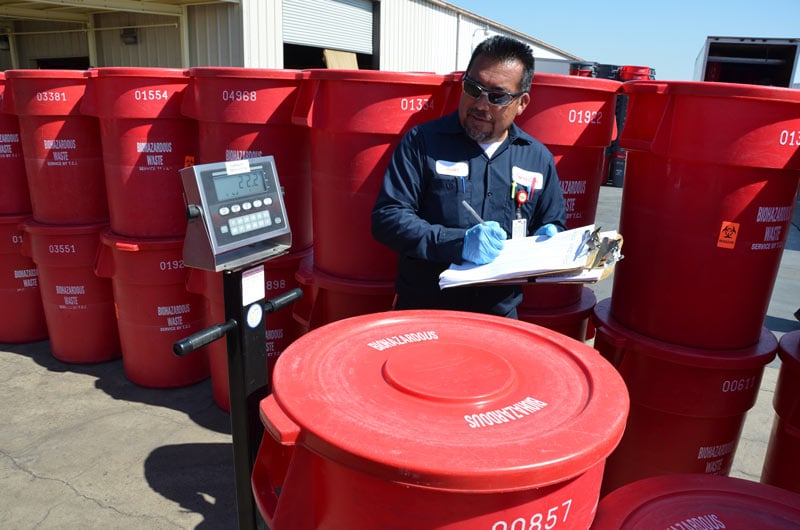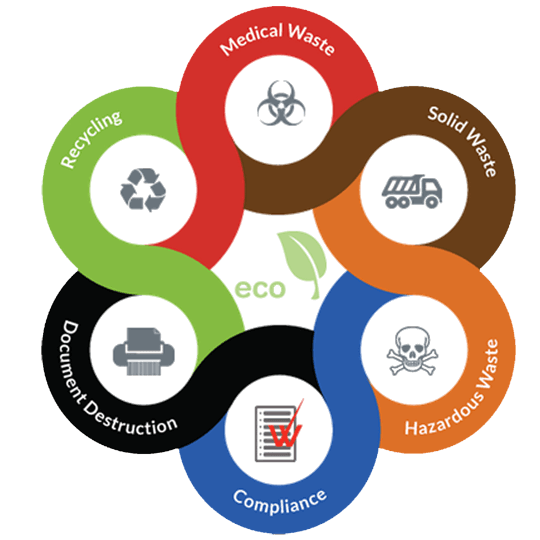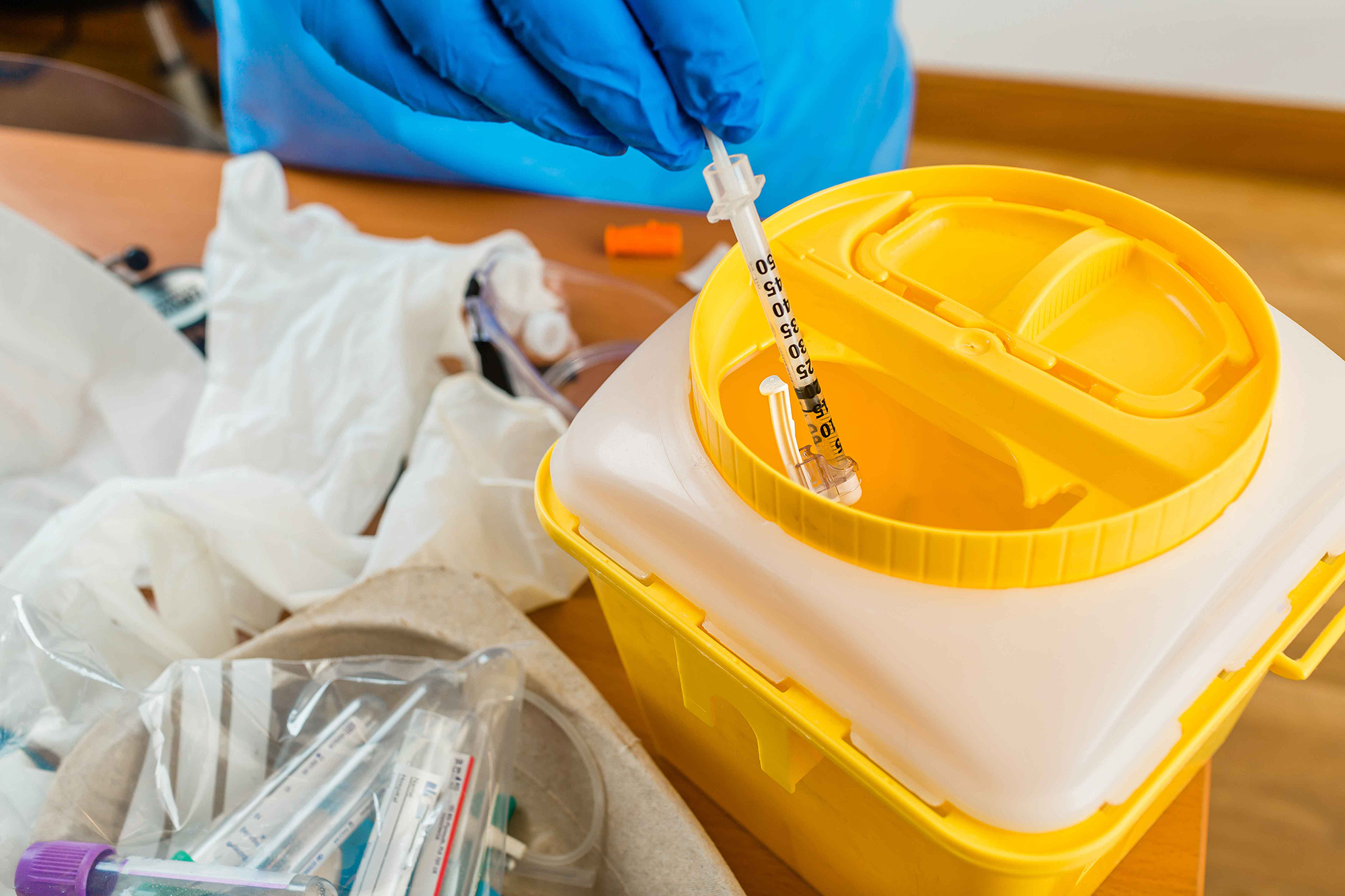Comprehensive Medical Waste Disposal Solutions: Making Certain a Healthy Environment
Ensuring Safe Handling and Disposal of Medical Waste
Making certain secure handling and disposal of clinical waste is of vital value in health care setups. Improper monitoring of clinical waste can position significant threats to the setting, public health and wellness, and healthcare workers. In this intro, we will certainly discover the value of proper clinical waste administration, the threats connected with incorrect handling and disposal, as well as the standards and methods that can be executed to guarantee its secure disposal.
Significance of Proper Clinical Waste Management
Appropriate medical waste monitoring is of utmost value in ensuring the safety and security and well-being of medical care experts, patients, and the basic public. Clinical waste refers to any type of waste created by healthcare centers during the diagnosis, therapy, or immunization of pets or humans. This waste can posture severe health risks if not taken care of and dealt with effectively.
One of the primary reasons why correct clinical waste monitoring is essential is to avoid the spread of infectious diseases. Clinical waste, such as used needles, infected dressings, and organic materials, can bring unsafe microorganisms. If not managed and disposed of appropriately, these microorganisms can be transferred to health care employees, patients, waste trainers, and also the public, resulting in the possible break out of illness.
Furthermore, proper medical waste monitoring aids protect the setting - medical waste removal. Clinical waste has harmful materials, consisting of chemicals, pharmaceuticals, and radioactive compounds. When not handled appropriately, these compounds can pollute soil, water bodies, and the air, posturing a substantial risk to communities and public health and wellness
Furthermore, effective clinical waste administration ensures compliance with international standards and neighborhood policies. Governments and regulatory bodies have established procedures and guidelines to ensure the safe handling, storage space, transport, and disposal of clinical waste. Sticking to these laws is vital to stay clear of lawful effects and keep the reputation and reliability of medical care facilities.
Threats of Improper Handling and Disposal

Clients can additionally be revealed to these transmittable conditions if clinical waste is not appropriately thrown away. If polluted needles or various other sharps are not disposed of in assigned puncture-proof containers, they may mistakenly puncture clients, leading to prospective infections. Additionally, if medical waste is not segregated appropriately, there is a risk of cross-contamination between various kinds of waste, additional increasing the possibilities of condition transmission.
Improper disposal of clinical waste can likewise have detrimental effects on the setting and the basic public. If clinical waste is not treated and gotten rid of correctly, it can contaminate water resources, dirt, and air, bring about the spread of diseases and pollutants. This can have lasting consequences on ecosystems and public wellness.
Guidelines for Safe Handling of Medical Waste
Carrying out efficient procedures for the secure handling of clinical waste is important in ensuring the protection of health care specialists, individuals, and the general public. These guidelines are critical in decreasing the risks associated with the handling and disposal of medical waste, such as infections, injuries, and ecological pollution.
Firstly, healthcare centers should develop an extensive waste monitoring strategy that abides by local, nationwide, and worldwide laws. This strategy must include clear directions on waste segregation, product packaging, storage space, transport, and labeling. It is crucial to separate different kinds of waste, such as sharps, contagious products, drugs, and non-hazardous waste, to avoid cross-contamination and advertise risk-free disposal.
Additionally, medical care workers need to get extensive training on appropriate waste handling methods. They need to be enlightened on the prospective dangers of clinical waste, the appropriate usage of personal protective equipment (PPE), and the proper procedures for dealing with, carrying, and throwing away various types of waste.
Moreover, medical care facilities should frequently keep track of and investigate their waste management techniques to make certain conformity with standards. This includes performing routine inspections, examining waste handling treatments, and giving responses and training to personnel members.
Reliable Methods for Garbage Disposal
To guarantee the secure handling and disposal of clinical waste, it is vital to employ reliable strategies for waste disposal. Clinical waste can pose considerable risks to public wellness and the environment if not dealt with and disposed of properly. Health care facilities and waste monitoring companies have to apply suitable methods to mitigate these threats.
It entails dividing various kinds of clinical waste based on their characteristics. Medical care centers should give clear standards and training to team participants on how to segregate waste appropriately.

Moreover, health care facilities should team up with accredited waste management business to make certain proper disposal of medical waste. These companies have the knowledge and devices called for to safely manage and get rid of of clinical waste in conformity with policies and finest practices.
Training and Education for Healthcare Professionals
Healthcare professionals play a crucial role in ensuring WasteX Medical Waste Disposal the secure handling and disposal of clinical waste with detailed training and education. It is important for doctor to have a deep understanding of the possible risks connected with clinical waste and the proper procedures for its monitoring. By getting correct training, medical care professionals can reduce the possible transmission of contagious illness, prevent ecological contamination, and protect both themselves and the basic public.

Moreover, training programs should highlight the use of individual protective devices (PPE) and appropriate hand hygiene methods when taking care of medical waste. medical waste removal. Medical care professionals should know exactly how to correctly dispose and make use of of PPE to shield themselves from possible direct exposure to unsafe materials. They should also be enlightened on the value of routine handwashing and the appropriate use of hand sanitizers to decrease the spread of transmittable diseases
Continuing education and learning and routine updates on clinical waste management practices are important for healthcare experts. As standards and regulations develop, it is necessary to keep doctor informed regarding any type of adjustments in protocols and ideal practices. This will ensure that they remain current and keep a high criterion of safety in taking care of and getting rid of of clinical waste.
Final Thought
In conclusion, correct handling and disposal of clinical waste is essential to make sure the security of healthcare specialists, people, and the atmosphere. Overlooking to follow laws and standards can result in numerous dangers and hazards. Applying reliable approaches for garbage disposal and offering ideal training and education for health care specialists are necessary in preserving a secure health care setting. By adhering to these techniques, we can reduce the possible dangers associated with medical waste.
Clinical waste refers to any kind of waste created by medical care centers throughout the medical diagnosis, therapy, or immunization of pets or humans. If clinical waste is not segregated appropriately, there is a danger of cross-contamination in between various kinds of waste, further increasing the chances of condition transmission.
It is essential to separate different types of waste, such as sharps, contagious products, pharmaceuticals, and non-hazardous waste, to avoid cross-contamination and promote secure disposal. WasteX Medical Waste Disposal.
To make certain the secure handling and disposal of medical waste, it is necessary to use effective methods for waste disposal. In addition, health care facilities ought to develop a regular waste collection and transport routine to prevent waste buildup and minimize the risk of crashes or contamination.